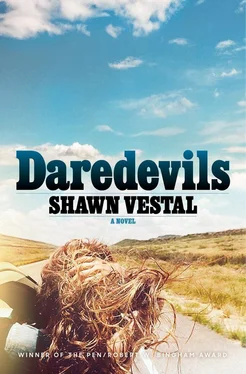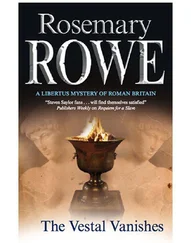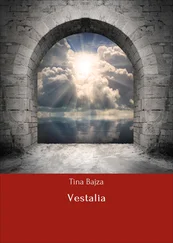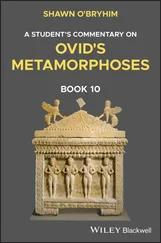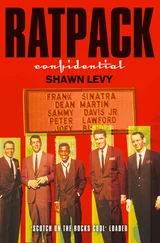Boyd spits out the window. “I don’t get why you don’t know if they’re moving here,” he says. “What’s the big secret?”
Boyd can’t understand Jason’s family, Jason knows, because they almost never tell one another anything, while he and his mother tell each other every embarrassing thing. Jason doesn’t know what to say about Dean. He can feel already how having them here is going to reflect on him, on his family — how it will create a new zone of caution between him and others.
“They’re just old-fashioned,” he says. “They live down there on the Utah-Arizona line. It’s like they’re half Amish.”
“Down there with the polygamists?”
“I’m not sure.”
Dad comes to the truck, boots crunching the shorn hay stalks. He takes off his hat and squints at them, sweat sheened, the tips of his nose and ears a deep red.
“All right, boys, let’s get back to it,” he says.
“Hey, Mr. Harder,” Boyd says. “Is your brother moving here or what?”
Dad pulls on his gloves, gets them snug.
“We’re still figuring that out,” he says.
• • •
Grandpa has been dead for two weeks now, the funeral come and gone, and everything still feels tilted on its side. For as long as Jason can remember, this has been the order of things: him, his parents, and Grandpa down the road. His grandmother died when Jason was four, and he doesn’t remember her at all. The current arrangement — the family, as he understood it to exist — had taken on a feeling of permanence.
And then there is the pressing strangeness of Dean and Ruth and their kids. Dean calls Ruth “Mother” in a stern voice, they dress like pioneers, and an air of self-imposed privation hangs around them. None of them says much, always waiting for Dean to talk. They don’t watch television or go to movies or dances, and they eat weird food. For one of the family dinners before everyone left, Ruth made meat-free hamburgers out of bulgur. Everyone picked at them unhappily while Ruth talked about the benefits of eating less meat and sugar. It was the quietest meal of the week, as people nibbled the crumbly patties and held their tongues.
Afterward, Roy had driven Jason into town for cheeseburgers, tater tots, and suicides at the Oh-So, where they laughed themselves to tears over Ruth’s food.
“ Ho-ly shit . Those poor kids,” Roy had said, sinking a tot into a tub of pink fry sauce. “Someone ought to set them free. Nobody should be forced to eat like that.”
“Why do they?”
“Why do they do anything? Don’t ask me.” He seemed happily unconcerned. “I used to tell my friends that Dean had crooked calf disease. You know what that is? When their feet are turned under and twisted all around? Nothing you can do for ’em. It’s just unfixable. Dean’s like that — just deformed . From the ground up. His feet are all fucked up.”
Jason is tempted to say he hates them, but why would he hate them? He feels a stinging blade of hatred in the side, like a stitch in the abdomen from running — a resentment that they magnify everything he dislikes about his family and church and town, the limited horizons, the boring reverence, the feeling that the people who were considered wise were in fact stupid. And the truth of it, the real thing: the fear that they are him. That he is them. These freaks.
In the days before the funeral, Dad, Dean, and Roy spent a lot of time huddled together, speaking in low voices, pointing, and shaking their heads. Sometimes Bonnie and Jenna would join in. They were sorting through the inheritance — Grandpa had left each of the five siblings a share of the land. Dad already had 250 acres and the dairy, which he’d bought years earlier. The brothers were going to buy out the sisters, but some unknown tension remained unresolved.
The night before the funeral, Jason walked into the kitchen to find the brothers around the table. Mom stood at the sink, her back to them. She seemed smaller than usual in the waning glow from the overhead light. They all tower over her, the Harder men — even Jason is a head taller — but she never seems short, exactly; she has a way of bringing your eyes down to her, a directness that could make a high priest squirm. She was washing jars in steaming water; the women were going to can green beans and tomatoes the next day.
Dad was saying, “But I bought it, Dean. How’s that supposed to count against me here?” Dean stared at a point between his long, thickly knuckled hands, splayed on the table before him. The skin around his eyes had tightened whitely. Roy winked at Jason.
Jason opened the fridge and scouted, waiting for them to resume talking. He grabbed a Tupperware bowl, opened it, and looked at a lump of leftover ground beef. The hamburger looked like volcanic rock, a solid created from a liquid’s lack of geometric logic. At his back, a fingernail ticked on the laminate tabletop. He imagined a tiny mountain climber rappelling down Hamburger Mountain into a greasy white crevasse. Dad said, “Jason, you’re letting out all the cold air.”
“It’s not like there’s only so much cold air,” Jason said. “Like there’s only a certain amount of cold, and you’ve got to keep it trapped in there, like bees.”
He could be so stupid. Jason thought he was going to choke on it.
Roy laughed. “He’s making a certain kind of sense, Louis.”
“Thank you, son,” Dad said, ignoring Roy. “Now clear out of here and let us talk.”
“Talk. Please.”
Mom turned, holding a gleaming, soapy jar. “I don’t know where all this mouth is coming from,” she said. “But that’s enough.”
Jason closed the fridge door and sauntered out, steaming. He couldn’t believe they were fighting over this place. Who would ever want to be here?
• • •
They move into the last field, the fifty acres between Grandpa’s house and Shoestring Road. Some of these final windrows are barely even there. This is where the jacks had hit a few weeks earlier, gnawing half the hay into bare patches and paths swirling through the field like the scribbling of a giant.
Dad stops the combine and climbs out. Shakes his head. A sudden rustling at the edge of the field startles Jason. A single jackrabbit springs into the air, long ears back, bounding into the desert in ten-foot leaps. Boyd points an imaginary gun and says, “Boom.”
Later that afternoon, when they’re halfway through the field, the end in sight, Dean comes striding through the stubble, raising a low cloud. Jason sits in the sweltering, oil-rank cab of the combine, engine roaring in an obliterating drone. Dad follows in the truck, while Boyd bucks bales onto the flatbed. Everyone stops and watches Dean. He doesn’t wave, and they don’t, either, and when he reaches them, a few strained, silent seconds pass.
Finally, Dean says something, and Dad shrugs and gestures toward the rumbling cab, or toward Jason. He’s come to help, it seems, though they are all but done. Jason turns off the engine, and Dad calls, “Whyn’t you let your uncle Dean up there for a minute?”
Dean climbs in and nods, says, “Jason.” His denim shirt is buttoned to the neck, darkened with sweat at the collar, and he wears a green John Deere cap with a stiff bill. He smells sour and fundamental, like homemade soap and tent canvas. He looks around, at the pedals and the gearshift and back at the pedals. The sun illuminates the calcified grime on the cab windows. He turns the key and the engine bursts into life.
“Gotta watch that clutch,” Jason shouts.
“I don’t require any instruction from you.”
Dean might be teasing. He presses the clutch, forces the gearshift into first, and eases his foot down on the gas. The gearshift begins to grind and vibrate and his foot slips off. The engine chugs and dies.
Читать дальше
